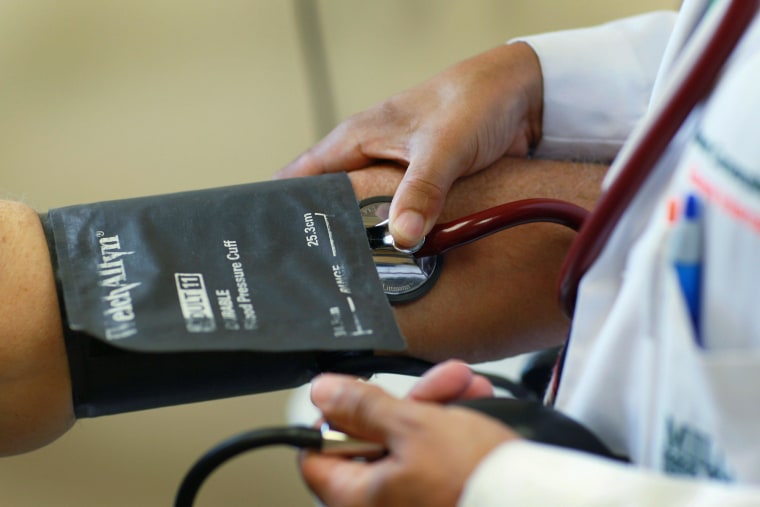A looming yet unrecognized crisis in the Latino community: that's how the Alzheimer’s Association of America refers to the disease, which affects Hispanics in greater numbers than the general population. The number of Latinos with Alzheimer's could grow by a staggering 600 percent by 2050, from the estimated current 200,000 to about 1.3 million.
Several national Latino groups came together Tuesday to launch Latinos Against Alzheimer’s, the country’s first-ever coalition of Hispanic organizations that focuses on raising awareness of Alzheimer’s as an urgent health issue among U.S. Hispanics.
“It is time to bring Alzheimer’s out of the shadows in the Latino community,” said Latinos Against Alzheimer’s Director Jason Resendez. “Too many families are struggling with this disease every day, and it is critical for our community to come together to address this growing crisis with policy solutions, research, and public education. We will ensure that Latino voices are heard in these important discussions and that it includes what is unique about the community and is culturally sensitive.”
Research has suggested higher incidences of cardiovascular disease and other risks, such as diabetes, may be factors in how Alzheimer’s affects Latinos. For instance, the U.S. Department of Health’s Office of Minority Health says that Mexican Americans – the largest group of Latinos in the United States – are nearly twice as likely as non-Hispanic whites to be diagnosed with diabetes and 50 percent more likely to die from the disease.
Latinos Against Alzheimer’s coalition members include The Latino Alzheimer’s & Memory Disorders Alliance (LAMDA), the League of United Latin American Citizens (LULAC), the Hispanic Federation, and the National Hispanic Council on Aging (NHCOA).
“Alzheimer’s represents a growing burden on Latino families and individuals,” said NHCOA President and CEO Yanira Cruz. “I know that coordination and partnership are critical to stopping Alzheimer’s and the launch of this coalition is an important first step.”
In fact, the costs for caring for Alzheimer’s patients - $203 billion in 2013 - are expected to skyrocket to $1.2 trillion in less than 40 years. This includes a 500 percent increase in Medicare and Medicaid spending.
“Funding for Alzheimer’s is inadequate compared to its costs, and not nearly what it is for other chronic diseases and cancer, and there is very little research on why Alzheimer’s has such an impact on the Latino community,” said George Vrandeburg, founder of the group US Against Alzheimer’s.
The coalition will not only push for more funding and more research, but also for greater participation of Latinos in clinical trials about Alzheimer’s.
Resendez said the coalition will be conducting a study on the impact of Alzheimer’s care and its costs in the Latino community, with results expected next fall.
